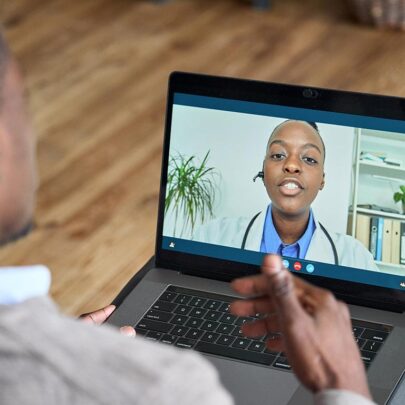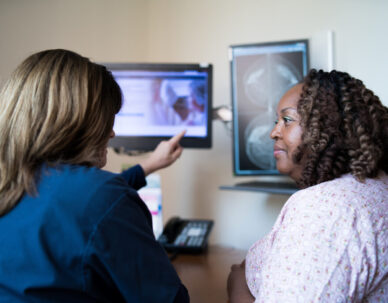Assessing the Safety of Telehealth in Clinical Trials
November 1, 2023
Clinical trials have historically required in-person attendance for participants. As the onset of the COVID-19 pandemic impacted the practicality to continue the traditional clinical trial format, researchers began exploring modifications to keep clinical trials open through telehealth and local collection of laboratory tests or imaging studies.
While the implementation of telehealth in clinical trials proved successful in several research spaces, its feasibility and safety had yet to be fully explored in cancer populations.

To better understand the safety of telehealth in oncologic clinical trials, researchers led by PC3I Faculty Emily Ko, MD, MSCR evaluated gynecologic oncology patients who were enrolled in clinical trials during the COVID-19 pandemic. Patients in remote clinical trials were assessed for adverse health outcomes, emergency department visits, and hospital admissions and compared to those in traditional clinical trial settings.
Findings published in Gynecologic Oncology showed no difference in adverse patient outcomes between the two groups, demonstrating that telehealth and remote testing are safe to implement in clinical trials. Telehealth did not impact clinical trial protocols, and should be considered for larger scale clinical trial adaptation in oncology settings. Further suggestions include the need for increased flexibility in clinical trial design and more inclusion of telehealth in clinical trials to decentralize operations. Additionally, since Medicare’s pandemic emergency coverage is set to end in December of 2024, considerations of telehealth reimbursement should be made.

